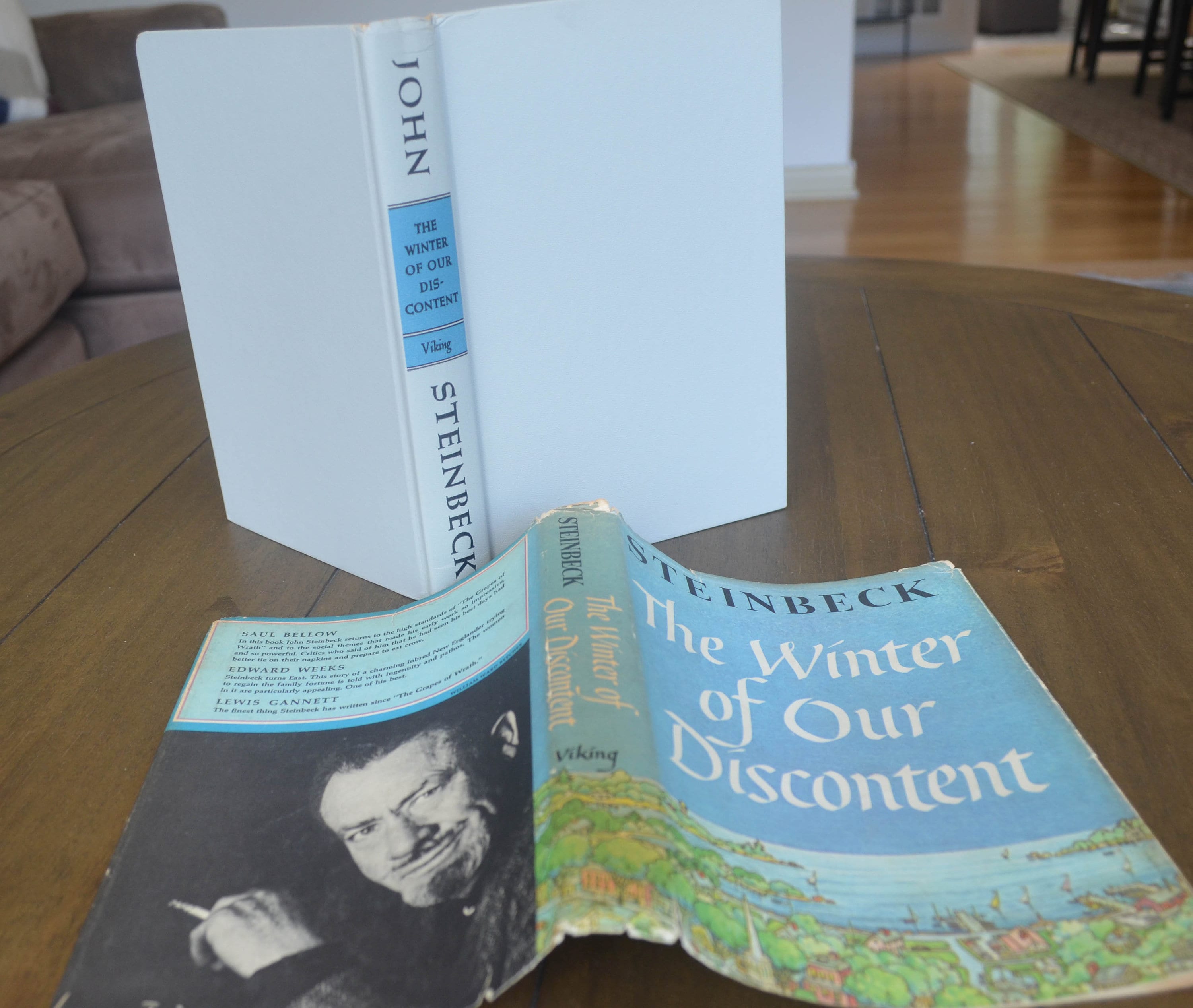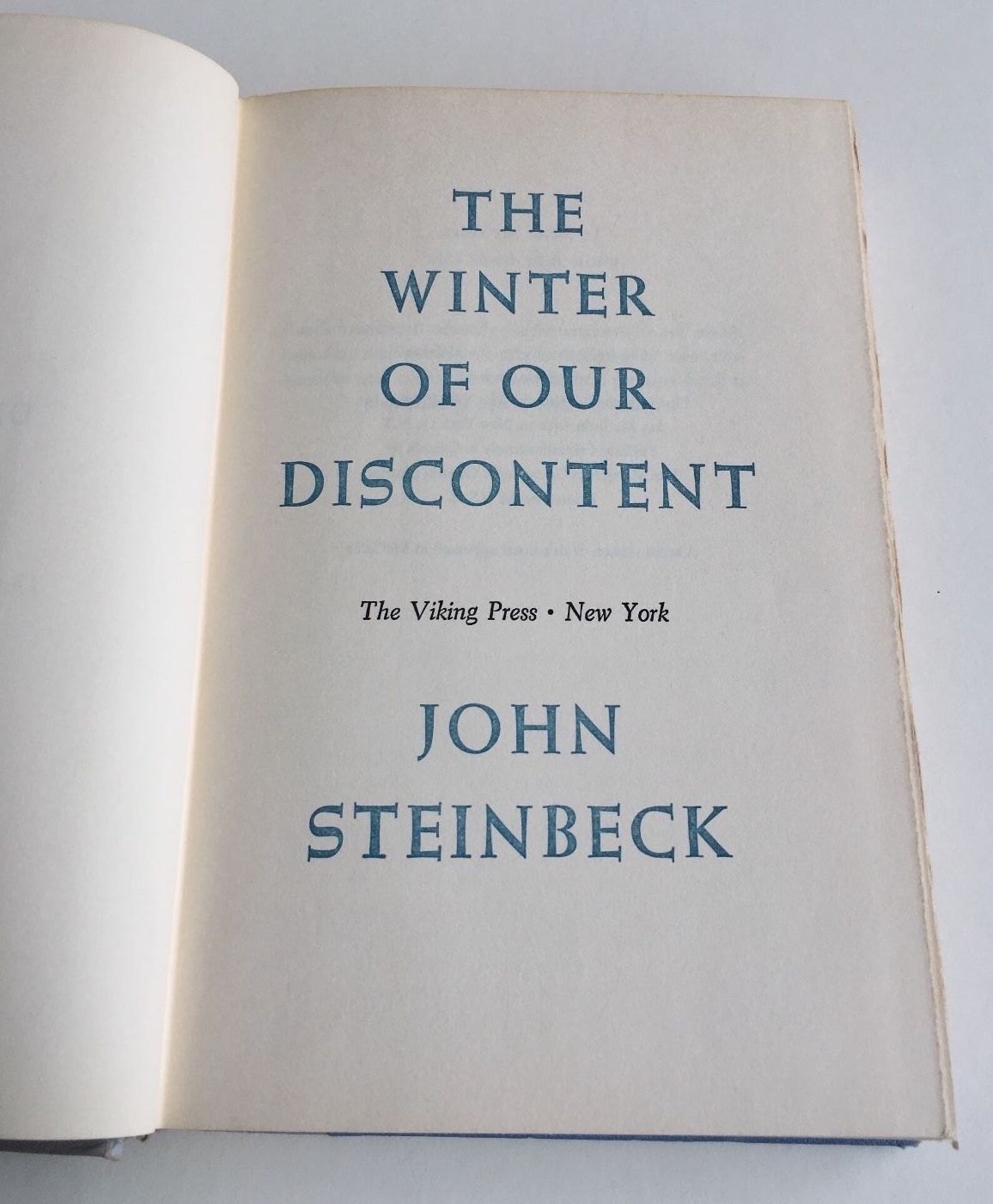

During the next five years, he supported himself as a laborer and journalist in New York City and then as a caretaker for a Lake Tahoe estate, all the time working on his first novel, Cup of Gold (1929). In 1919 he went to Stanford University, where he intermittently enrolled in literature and writing courses until he left in 1925 without a degree. Last line: "Else another light go out.JOHN STEINBECK (1902-68) was born in Salinas, California, in 1902 and grew up in a fertile agricultural valley about twenty-five miles from the Pacific Coast-and both valley and coast would serve as settings for some of his best fiction. But I think the novel transcends its time, and is absolutely pertinent today.įirst line: "When the fair gold morning of April stirred Mary Hawley awake, she turned over to her husband and saw him, little fingers pulling a frog mouth at her." In light of some of the shenanigans that have been going on in recent times some of the issues Ethan faces may seem a bit quaint. The novel was written in 1960 and Steinbeck at the time was influenced by and reflecting up such things as the HUAC hearings, the Quiz Show cheating scandals, and many other political and financial scandals. Should he take kickbacks to order from a different supplier at the grocery store without his employer's knowledge? Could he rob the bank and get away with it? Should he help some of the leading denizens of the town make an advantageous purchase of land (based on their insider knowledge) from his childhood best friend?

Over the course of the novel he faces and makes moral and legal choices that could possibly better his status and possibly cause him to lose his soul. What I don't see is why you stay broke.'" Ethan is keenly aware of his decline in the eyes of the world, and he is told by a family friend, the town banker, "'Now that's what I don't understand, Ethan. Now Ethan and his wife Mary and their two children still liven in the old Hawley home, but Ethan works as a clerk in the grocery store his family once owned. The Hawleys were once one of the leading families in town. The novel takes place over the late spring (Easter weekend) to early summer (4th of July weekend) in 1960 in the small town where Ethan Allen Hawley's family has lived for generations.


The Committee stated that with this book, Steinbeck had "resumed his place as an independent expounded of the truth, with an unbiased feel for what is authentically American." The introduction to the edition I read describes it as a "parable of corruption and redemption," and also "a lesson in Darwinian survival." This is the book that was cited by the Nobel Committee when Steinbeck won the 1962 Nobel.


 0 kommentar(er)
0 kommentar(er)
